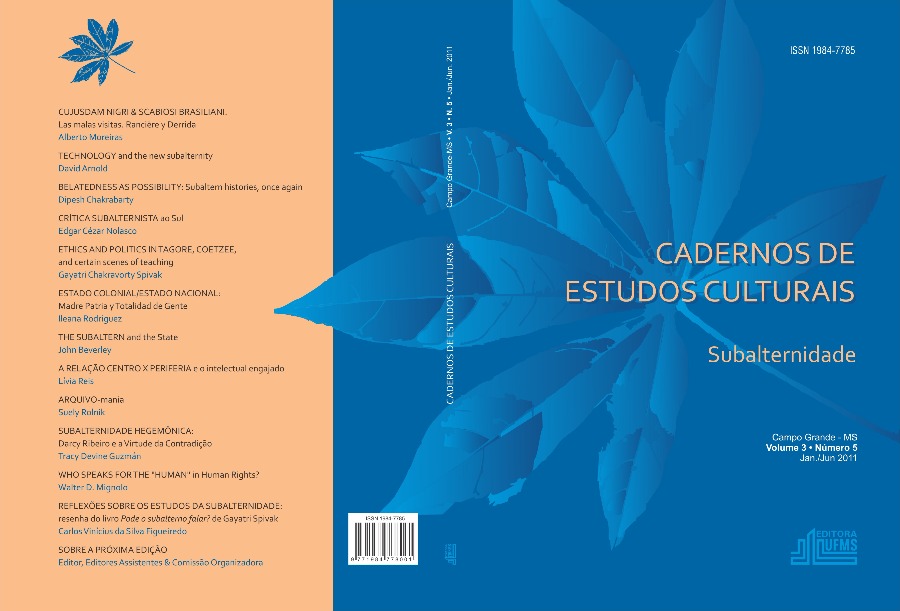WHO SPEAKS FOR THE “HUMAN” IN HUMAN RIGHTS?
Resumo
“Human Rights”—as they are conceived in the Universal Declaration of 1948— presupposes that “human” is a universal category accepted by all and that as such the concept of human does justice to everyone. However, the concept of human used in general conversations, by the media, in university seminars and conferences, is a concept that leaves outside of “humanity” a quite large portion of the global population. That men (and women) are all born equal, is a statement that since eighteenth-century Europe we can find in Bills of Rights and European and American constitutions. The statement has been made under the presupposition that everybody with a basic education, no matter where (in China, in the Middle East, in any region of Africa, Central Asia and South America, in Russia, etc.), will agree with such a statement. Indeed, it makes a lot of sense and it can be taken as, if not universal, a global truth. The problem rests there, in the idea of equal status at birth. The problem is that if men (and women) are born equal, they do not remain equal the rest of their lives. The statement that I have never seen written as such but implied in countless places—“men and women are all born equal but they do not remain equal the rest of their lives”—should also be globally, if not universally, accepted. Surely it will be endorsed by the majority of the population of the planet who know by experience that such a statement is true. For all human beings born equal, losing their equality is a humiliating experience.
Downloads
Publicado
Edição
Seção
Licença

Este obra está licenciado com uma Licença Creative Commons Atribuição-NãoComercial 4.0 Internacional.







